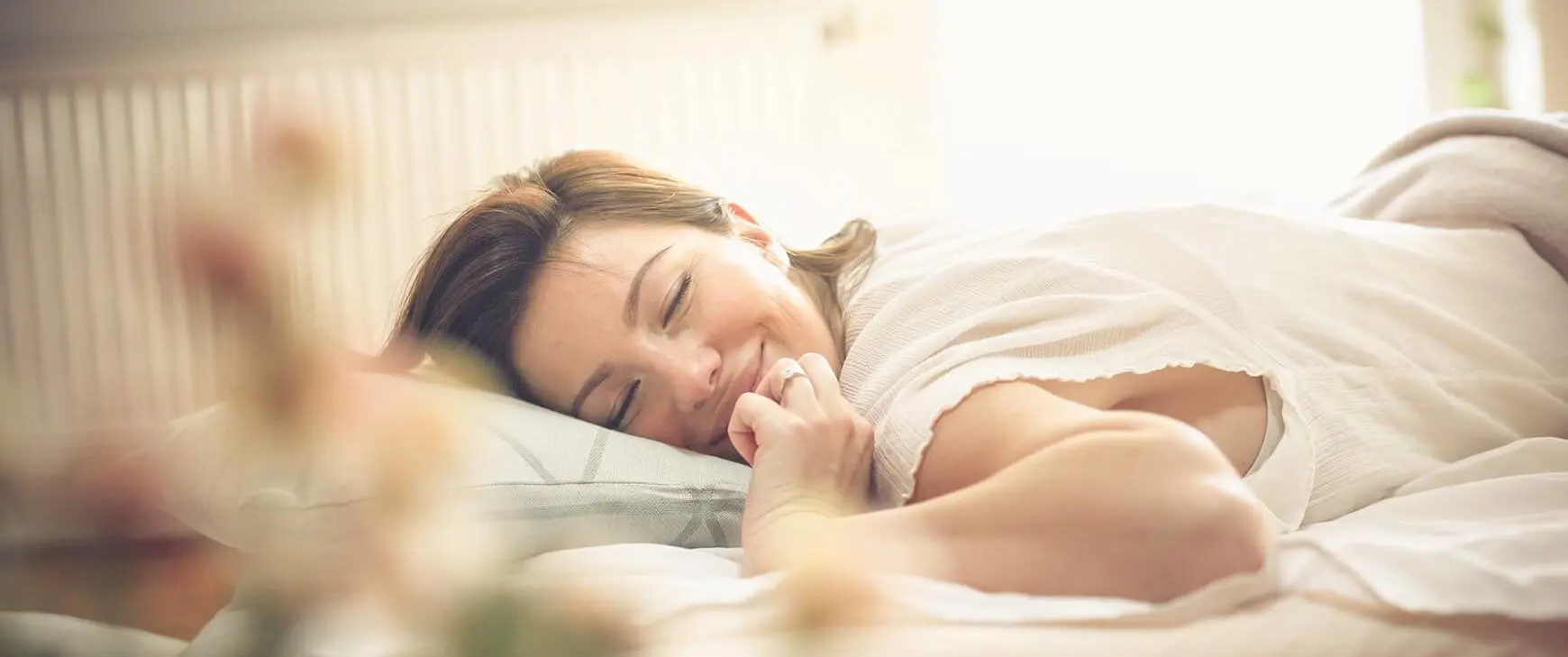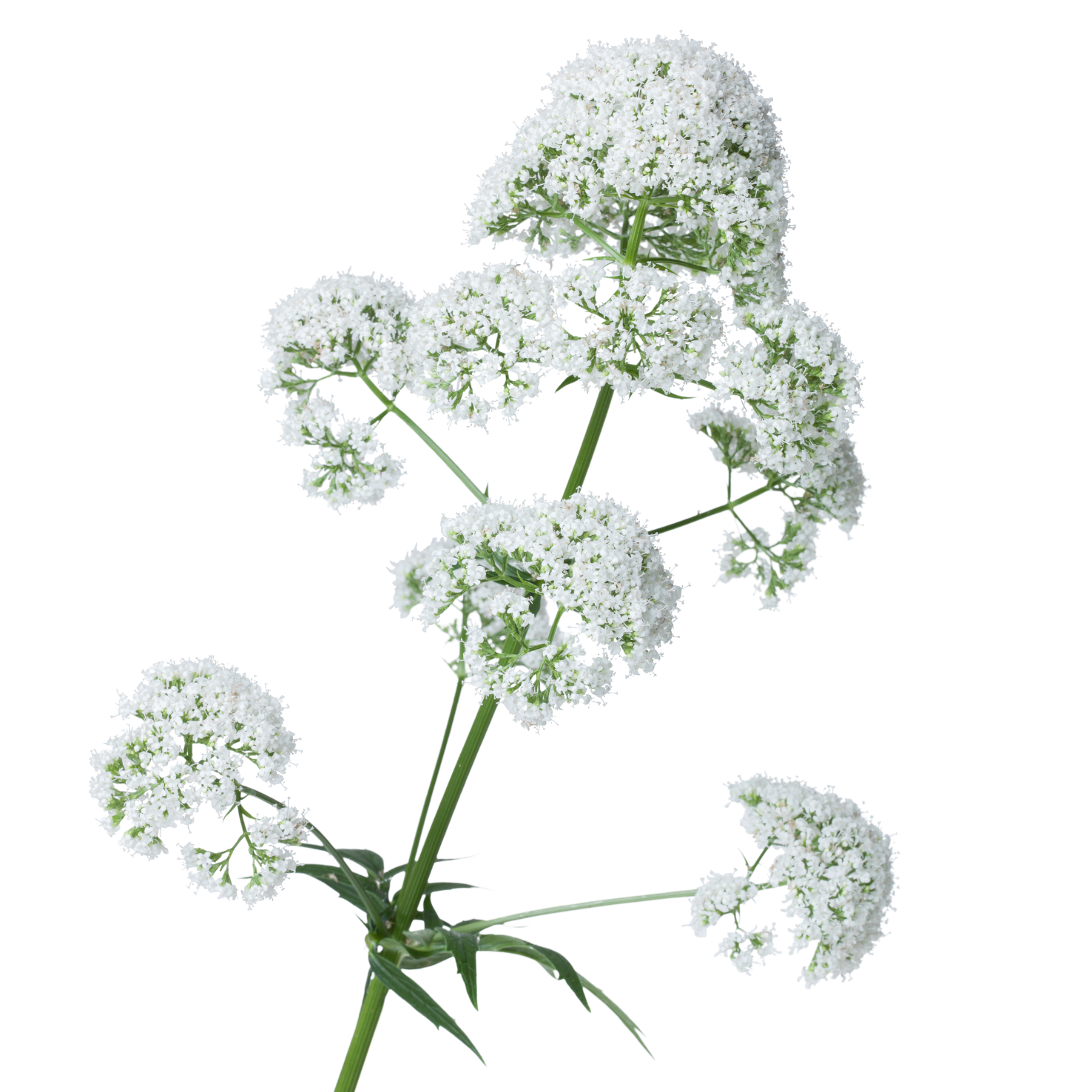
Sleep disorders (insomnia) and how to treat them
Sleep disorders are not just a nuisance that can cause trouble concentrating and tiredness – in the long term, they can also have a physical and mental impact.
There are various herbal products available to promote natural sleep.
Sleep disorders are becoming more and more common. One reason might be modern lifestyles, which are not conducive to sleep in many ways. On top of this, there are the frequent stresses in a person’s career or personal life (or both), which can lead to a downward spiral. People who wake up in the morning feeling tired are ill equipped to handle daily stress. The extra stress then makes sleep disorders even worse. Plant extracts such as hops and valerian root are good aids for promoting sleep and ensuring a good night’s rest. Herbal products should also be combined with other practices that promote good sleep during the night, however. These practices are referred to as “sleep hygiene”.
What are sleep disorders?
The amount of sleep a person requires varies. For adults, between five and nine hours is considered normal. Most people require seven or eight hours of sleep to perform at full capacity and be fully refreshed.
We pass through various sleep phases. Light and deep sleep phases alternate, repeating in roughly 1.5-hour cycles. What is most important for restful sleep is to pass through several of these sleep cycles without disruption.
Doctors refer to sleep disorders (or insomnia) when a person sleeps too little or too much, when they wake up frequently at night or do not feel refreshed and well-rested in the morning. According to the medical definition, a person has a chronic sleep disorder when they have experienced a sleep disorder at least three nights a week for more than a month. The most common sleep disorders include trouble sleeping through the night and falling asleep.
Trouble falling asleep
People who have trouble falling asleep often lie awake long into the night. They frequently toss and turn or find their minds racing endlessly. Looking at the clock causes the person even more stress because there are just a few more hours left until the alarm clock rings. The pressure rises to finally fall asleep. (Herbal products can help a person to fall asleep and attain a state of rest and relaxation more quickly.)
Trouble sleeping through the night
There are also sleep disorders that cause a person to wake up frequently during the night. Waking up periodically is entirely normal, however. When we sleep through the night, there are some phases of lighter sleep during which we may be awakened suddenly by sounds or the need to urinate. A person has a sleep disorder when they are then unable to quickly fall back asleep again. Problems staying asleep should always be considered individually. If they cause suffering and stress for the person because they keep waking up, then they have a sleep disorder.
Causes of sleep disorders
Nearly everyone has trouble falling asleep or sleeping through the night from time to time. If this occurs more frequently or over a longer period, the person should see a doctor to find out why. For particularly serious sleep disorders, a person can spend the night at a sleep laboratory where their sleep can be closely monitored in order to identify the causes of the sleep disorder. The following factors can increase the likelihood of sleep problems or make them worse.
Lifestyle
We often have daily habits that are not conducive to healthy sleep. These include drinking alcohol. Drinking in the evening may make a person feel tired, but it can disrupt the natural phases of sleep. Those who do not live in harmony with their individual sleep-wake cycle or who eat very heavy meals before going to bed may be making their sleep problems worse.
The use of laptops, tablets and mobile phones is another factor that should not be underestimated. On the one hand, they create a temptation to fire off a few quick e-mails or messages or check social media, making it harder in the evening to forget about the events of the day. The displays also have a light spectrum, which keeps the brain in its wake mode. This is why it is especially important for people with sleep disorders to forego using such devices late in the evening or at night. They are especially counterproductive when they distract a person who is trying to fall asleep.
The sleep environment
The ideal sleep environment promotes falling asleep and sleeping through the night. This includes a good bed with a mattress suitable for the person’s weight, sleep position and personal preferences. The support structure underneath the mattress also affects the level of comfort in the lying position. According to experts, the ideal room temperature in the bedroom is 18 degrees. Noise and light can also disrupt sleep.
Psychological factors in sleep disorders
Constant stress can interfere with sleep quality, but there are also a number of psychological disorders, such as depression and anxiety, that are often associated with sleep disorders. In such cases, it is important to examine the potential causes so that they can be treated professionally and/or by a doctor.
Physical factors in sleep disorders
In some cases there are also physical factors affecting a person’s sleep quality. Loud snoring or sleep apnoea (pauses in breathing during sleep) can cause frequent waking and prevent deeper sleep phases. People with restless leg syndrome often have an especially hard time falling asleep and suffer from restlessness, pain or tingling in the legs.
Causes of sleep disorders in children
Trouble sleeping can be normal part of childhood development for small children. Nightmares, night terrors and sleepwalking are much more common in children than in adults. When in doubt, parents should always talk to their paediatrician. Constant stress and pressure to perform often play a role in older children and young people – much as they do with adults. In addition to reducing stress, herbal products can help. We recommend talking to your doctor.
Short- and long-term effects of sleep deprivation
Sleep performs several important functions for the mind and body, which is why sleep disorders have some immediate effects – such as fatigue. Others only begin to show signs when a sleep disorder becomes chronic.
Why do we sleep?
Sleep is a time for physical and mental recuperation. This mechanism came about through evolution and can be observed in a similar form in nearly all vertebrates. During sleep, several processes regulate, regenerate and fortify the metabolism and immune system. Cells in the body regenerate. Neuroscientists also believe that our dreams play an important role. When we dream, we process emotional impressions. Memory also solidifies overnight.
Short-term effects of sleep deprivation
When we have had too little sleep, we find ourselves unfocused and tired, and our responses are slower. This can be dangerous, for example, when a person nods off while driving. People who sleep poorly suffer more frequently from headaches and burning or dry eyes. Many people are more irritable, aggressive and stress-prone when they have had too little sleep. Symptoms may also include intense food cravings.
Effects of long-term sleep deprivation
Sleep deprivation can cause cravings for sweet or fatty foods, leading to weight gain over time. Studies have shown that a prolonged lack of sleep can also increase the likelihood of developing dementia (Alzheimer’s). In general, a chronic lack of sleep appears to speed up the aging process for both the mind and body. The risk of depression, cardiovascular disease and diabetes increases as well.
Who is affected by sleep disorders?
Studies have yielded varying results on the incidence of sleep disorders. In surveys, more than half of all people reported having trouble sleeping from time to time. Nearly a tenth regularly had problems falling asleep or sleeping through the night. Experts believe that only a very small number suffer from serious disorders affecting their circadian rhythm. These are often sleep problems that can be remedied through a combination of better sleep hygiene and herbal products.
Women are also more frequently affected than men are. People who work shifts, have stressful professional or personal lives or suffer from psychological problems are more prone to sleep disorders.
Treatment of sleep disorders
People who suffer from long-term or serious problems falling asleep or sleeping through the night should see a doctor. People who feel exhausted in the morning, even after sleeping enough, should also be examined by a doctor to find out why. Physical factors, such as sleep apnoea syndrome, are sometimes the reason. There are plenty of things a person can do on their own to treat minor sleep disorders. These include taking herbal products and developing better habits in terms of sleep hygiene. The following options may be appropriate for treating sleep disorders.
Herbal sleep aids
There are herbal products that are mild sleep aids. Valerian root and hops, both of which have a calming effect and promote restful sleep, have proven especially effective. The two medicinal plants complement each other’s effect very well and are found in combination in products. Valerian root has an effect similar to the body’s own hormone adenosine: increasing sleep pressure and helping a person to fall asleep more quickly. Hops has an effect similar to melatonin and regulates the sleep-wake cycle.
When a person feels stressed or nervous and has trouble falling asleep as a result, medicinal plants, such as butterbur, valerian root, passionflower and lemon balm can help.
St. John’s wort is also a good option for people who are having trouble falling asleep or sleeping through the night when the reasons involve depressive states, inner restlessness and anxiety.
Eliminating psychological factors
When constant stress is causing sleep problems, stress reduction can help to make nights more restful. Relaxation techniques such as autogenic training or progressive muscle relaxation can be helpful, for example. If psychological disorders, such as depression, are causing a sleep disorder, night-time sleep can often be improved by treating the underlying illness with psychotherapy or medication.
Pharmaceuticals (sleeping pills)
Pharmaceutical sleep aids are only suitable for treating sleep disorders in the short term, such as when caused by acute problems. They can help both with problems falling asleep and with sleeping through the night. However, they should not be used for extended periods unless specifically directed by a doctor.
Tips: Sleep hygiene
In addition to herbal remedies, a person’s sleep hygiene should also be examined and improved. The following tips can help a person to fall asleep and sleep through the night better.
- Only go to bed when you are actually tired.
- The ideal bedroom temperature is 18 degrees Celsius.
- People who have a hard time winding down and relaxing can benefit from relaxation techniques, such as autogenic training or breathing exercises.
- Beginning in the afternoon, caffeinated beverages, energy drinks and coffee should be avoided.
- Smoking and alcohol can disrupt sleep during the night.
- Eat light, easily digestible meals in the evening (and not too late).
- The bed, mattress and supporting structure should be comfortable and suitable for the individual person.
- Consistent sleep and wake-up times, as well as evening rituals (such as having a cup of herbal tea before going to bed) can help cement the sleep-wake pattern mentally and physically and get your internal clock adapted to this routine.
- Naps should be avoided so that you are more tired in the evening and falling asleep will be easier.
- Smartphones and tablets have no place in the bedroom.
- Some people sleep much better when there is no alarm clock with illuminated numbers near them. This is especially true if you find yourself constantly looking at the clock when you cannot sleep. Simple tip: before going to bed just turn the clock around, so that it does not face you.
Self-test: Sleep disorders
This self-test provides you with an indication of whether you may be suffering from sleep disorders.
START NOWSelf-test: Sleep disorders
This self-test provides you with an indication of whether you may be suffering from sleep disorders.
START NOW




